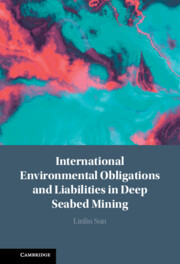The International Seabed Authority (ISA) is tasked with regulating deep seabed mining (DSM) in areas beyond national jurisdiction for the benefit of all humankind. Unlike most international institutions, the ISA operates as a frontline resource regulator with direct authority over DSM contracts and activities. To effectively carry out its regulatory mandate, the ISA operates under a complex institutional structure involving the delegation of significant powers to non-plenary bodies and administrative actors. As decision-making shifts to bodies less directly linked to State consent, it becomes increasingly important to ensure that these actors remain accountable both to the States granting them authority and to those affected by their decisions. This article argues that there is a mismatch between the ISA’s decision-making structure and its systems of administrative accountability that lead to a problem of affected interests being disregarded. The article highlights the structural and practical barriers that lead to this and then turns to an examination of the process mechanisms that the ISA has put in place to ensure that its decisions are responsive to affected interests. Whilst the ISA has some positive ad hoc procedures in place, it does not consistently institutionalise core administrative law pillars such as transparency, meaningful consultation, and the opportunity for review of decisions. A challenge for the ISA is to identify the range of accountability relationships created by the DSM regime, and to develop clear and consistent standards of accountability that can address the problem of disregard.

